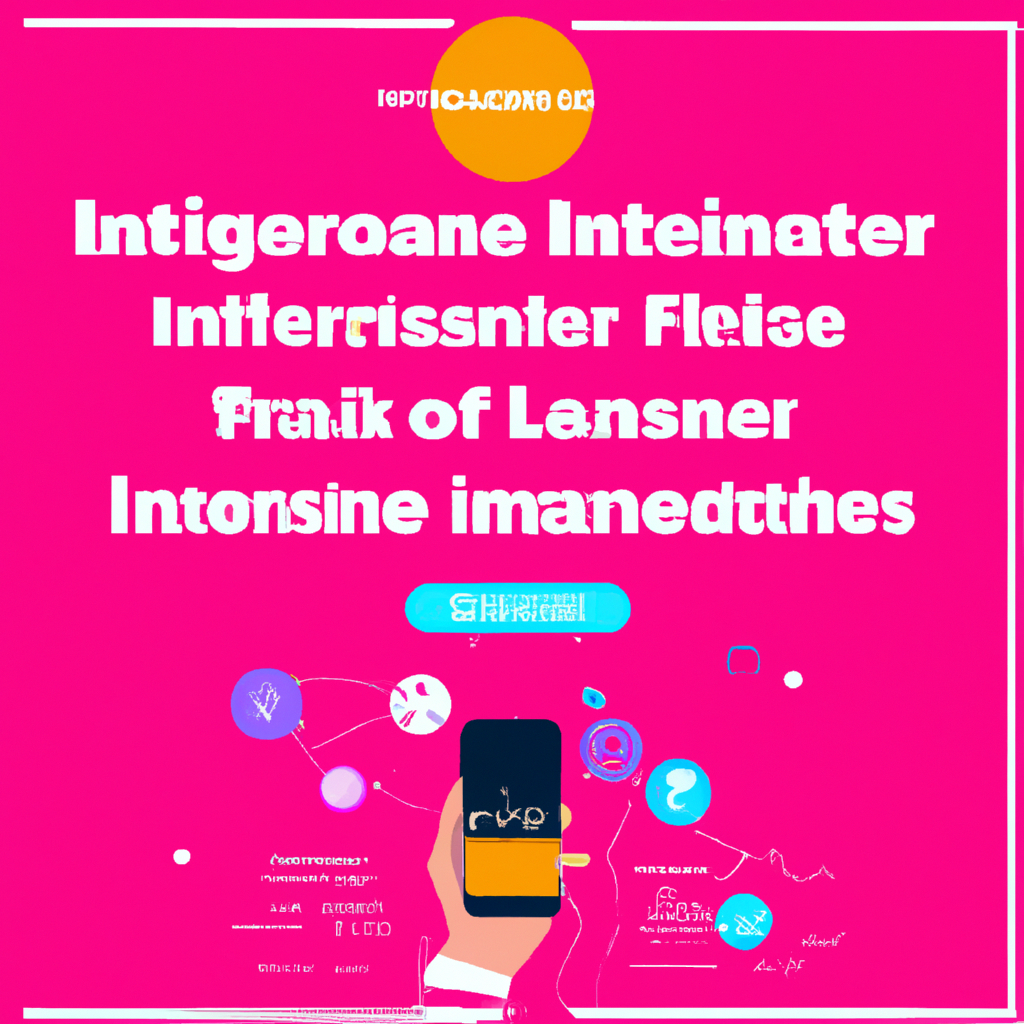Have you ever stumbled upon a post on social media where someone you follow is raving about a product or endorsing a brand? Well, what you’ve just witnessed is an example of influencer marketing at its finest. Influencer marketing is the art of leveraging influential individuals to promote your brand or product, tapping into their large and dedicated following to spread the word. In this article, we’ll explore what exactly influencer marketing is, and most importantly, how you can use it to skyrocket your own business. So, get ready to uncover the power of influencers and learn how to effectively harness their influence to make your brand shine.
Understanding Influencer Marketing
In today’s digital age, influencer marketing has emerged as one of the most powerful and effective strategies for brands to connect with their target audience. It involves collaborating with influential individuals, known as influencers, who have a loyal and engaged following on social media platforms. By leveraging the influence and trust that these influencers have built with their followers, brands can effectively promote their products or services.
Defining Influencer Marketing
Influencer marketing can be defined as a form of marketing where brands partner with influencers to promote their products or services to a specific target audience. Instead of directly advertising to consumers, brands utilize the credibility and reach of influencers to create a more authentic and relatable brand experience. This type of marketing focuses on delivering the brand message through the influencer’s content, whether it’s a social media post, video, blog post, or other forms of content creation.
Components of Influencer Marketing
There are several key components that make up influencer marketing. Firstly, it involves the identification and selection of appropriate influencers who align with the brand’s values and target audience. Secondly, it requires the development of a strategic partnership between the brand and the influencer, which involves clear communication and collaboration. Lastly, influencer marketing heavily relies on the creation and distribution of high-quality and engaging content that resonates with the audience and effectively promotes the brand’s message.
Types of Influencer Marketing
Influencer marketing can take on various forms depending on the goals and objectives of a brand. Some common types of influencer marketing include product reviews, sponsored posts, takeovers, contests or giveaways, and influencer-led campaigns. Each type offers a unique approach to engage with the target audience, and brands can choose the most suitable type based on their specific marketing objectives.
Benefits of Influencer Marketing
Increased Brand Awareness
One of the significant benefits of influencer marketing is the ability to increase brand awareness. By partnering with influencers who already have a dedicated following, brands can tap into their audience and expose their brand to a wider range of potential customers. The influencer’s endorsement and recommendation can make a significant impact in raising awareness about the brand and its offerings, especially among their loyal and engaged followers.
Targeted Audience Reach
Influencer marketing allows brands to reach a highly targeted audience. Influencers have built their following based on specific niches or interests, making their audience more likely to align with the brand’s target demographic. By carefully selecting influencers whose audience matches the brand’s target market, brands can ensure that their marketing message reaches the right people, leading to higher engagement and conversion rates.
Enhanced Credibility and Trust
Influencer marketing leverages the credibility and trust that influencers have established with their followers. People often turn to influencers for recommendations and advice, considering them as trusted authorities in their respective fields. When influencers endorse a brand or recommend its products or services, their followers are more likely to trust and consider those recommendations, which significantly boosts the credibility of the brand’s offerings.
Improved SEO and Online Presence
Partnering with influencers can have a positive impact on a brand’s search engine optimization (SEO) and online presence. When influencers promote the brand and link back to its website or social media accounts, it can result in valuable backlinks, improving the brand’s search engine rankings. Furthermore, the increased brand mentions and online discussions generated by influencer marketing can enhance the brand’s overall online visibility and reputation.
Cost-Effective Marketing Strategy
Influencer marketing can also be a cost-effective marketing strategy for brands. Compared to traditional advertising methods, such as television or print ads, influencer marketing often offers a higher return on investment (ROI). It allows brands to reach a targeted audience with a more personalized and authentic message, without the high costs associated with traditional advertising channels. Moreover, partnering with micro-influencers, who have a smaller but highly engaged following, can be a more cost-effective option for brands with limited budgets.

Identifying the Right Influencers
Relevance to Your Brand
When selecting influencers to collaborate with, it is crucial to consider their relevance to your brand. Look for influencers whose content aligns with your brand values, industry, and target audience. For example, if you are a fitness brand, partnering with fitness influencers who showcase their workouts and provide health tips would be a natural fit. Choosing influencers who have a genuine interest in your brand’s niche will ensure that their audience is a good match for your target market.
Engagement and Reach
An influencer’s engagement and reach are essential factors to consider when identifying the right influencers. Engagement refers to the level of interaction an influencer’s audience has with their content, such as likes, comments, and shares. Higher engagement indicates a more active and engaged audience, which can lead to better results for your marketing campaign. Reach, on the other hand, measures the number of people an influencer can potentially reach with their content. Both engagement and reach play a significant role in the success of influencer marketing campaigns.
Authenticity and Values
Authenticity is a vital aspect of influencer marketing. Look for influencers who have a genuine and authentic voice. Audiences are more likely to trust influencers who are transparent about their recommendations and who have a consistent brand image. It is also crucial to align your brand’s values with the influencers you partner with. Make sure they share the same values and beliefs as your brand to ensure an authentic and credible collaboration.
Audience Demographics
Understanding an influencer’s audience demographics is crucial for a successful influencer marketing campaign. Analyze the demographics of their followers, including age, gender, location, and interests. Ensure that the influencer’s audience matches your target market to maximize the campaign’s effectiveness. By partnering with influencers who have a strong following within your target demographic, you are more likely to connect with the right audience and achieve your marketing goals.
Previous Brand Collaborations
Consider the influencers’ track record when it comes to past brand collaborations. Look at the brands they have worked with in the past and evaluate the success of those campaigns. Examine how well their audience responded to the sponsored content, and whether it aligns with your brand’s goals and messaging. Previous successful brand collaborations can indicate that the influencer has experience in effectively promoting products or services, which can be valuable for your own campaign.
Developing an Influencer Marketing Strategy
Defining Campaign Objectives
Before embarking on any influencer marketing campaign, it is crucial to define clear campaign objectives. Identify what you aim to achieve through influencer marketing, whether it’s increased brand awareness, higher sales, or improved customer engagement. Setting specific and measurable objectives will allow you to plan and execute your campaign more effectively and evaluate its success accurately.
Setting Key Performance Indicators (KPIs)
Once you have established your campaign objectives, it is essential to set key performance indicators (KPIs) to measure the success of your campaign. KPIs can include metrics such as engagement rate, reach, website traffic, conversions, or sales. By determining specific metrics to track, you can monitor the impact of your campaign and make data-driven decisions to optimize your marketing strategy.
Determining Campaign Budget
Having a clear understanding of your budget is crucial for planning your influencer marketing campaign. Consider factors such as influencer fees, content creation costs, and additional expenses such as sponsored products or services. Depending on your budget, you may need to prioritize working with a few high-value influencers or explore collaborations with micro-influencers to maximize your reach within your budget limitations.
Creating a Content Strategy
A well-defined content strategy is essential for an impactful influencer marketing campaign. Collaborate with influencers to co-create content that resonates with their audience and aligns with your brand’s messaging. Determine the type of content that will be most effective for your campaign, whether it’s social media posts, videos, blog features, or a combination of formats. Establish guidelines for the narrative, key talking points, and any specific elements that need to be included in the content to ensure consistency and cohesiveness across the campaign.
Establishing Collaboration Guidelines
To ensure a successful partnership with influencers, it is crucial to establish clear collaboration guidelines from the outset. Clearly communicate your expectations and objectives to the influencers, including the key messages you want them to convey, any legal or ethical considerations, and the timeline for the campaign. Provide them with the necessary resources and information to facilitate their content creation process, and be available for ongoing communication and support throughout the campaign.

Negotiating and Engaging with Influencers
Initiating Contact
When initiating contact with potential influencers, it is essential to approach them in a professional and respectful manner. Personalize your outreach message to demonstrate that you have done your research and are genuinely interested in collaborating with them. Clearly communicate the purpose of your campaign, the benefits of partnering with your brand, and how their content and audience align with your target market. Remember to highlight any unique aspects of your brand or product that could capture the influencer’s interest.
Building Relationships
Building relationships with influencers is key to successful long-term partnerships. Take the time to engage with their content, leave meaningful comments, and share their posts. Show genuine interest in their work and provide value by sharing relevant industry news or insights. By nurturing the relationship beyond the scope of your initial campaign, you can establish a rapport and increase the chances of collaborating in the future.
Negotiating Compensation
When negotiating compensation with influencers, be transparent and fair. Consider their reach, engagement, and the value they can provide to your campaign. Compensation can take various forms, including monetary payment, free products or services, or a combination of both. Discuss and agree upon the compensation terms that benefit both parties and ensure a mutually beneficial collaboration.
Establishing Contractual Agreements
To protect both your brand and the influencer, it is essential to establish contractual agreements. These agreements should outline the scope of the campaign, the deliverables expected from the influencer, the compensation terms, as well as any legal or ethical considerations. Ensure that both parties have a clear understanding of their responsibilities and rights throughout the collaboration.
Effective Communication
Maintaining effective communication throughout the campaign is crucial. Be responsive and available to address any questions or concerns the influencer may have. Provide them with regular updates on the campaign’s progress and be open to their feedback and suggestions. By fostering a transparent and collaborative relationship, you can ensure a smooth and successful influencer marketing campaign.
Creating Impactful Influencer Campaigns
Choosing the Right Content Format
When creating influencer campaigns, it is essential to choose the right content format to effectively convey your brand message. Consider the preferences and engagement patterns of the influencer’s audience. For example, if their audience responds well to video content, consider creating engaging and informative videos that showcase your product or service. By tailoring your content format to the preferences of the audience, you can generate higher engagement and better results from your influencer campaigns.
Crafting Compelling Campaign Briefs
To ensure that influencers understand your campaign objectives and requirements, it is crucial to provide them with detailed and compelling campaign briefs. Clearly outline the key messages, key performance indicators (KPIs), content guidelines, as well as any specific instructions or creative direction. Include examples or references to help the influencer visualize the desired outcome. Crafting comprehensive and inspiring campaign briefs will set the foundation for influencer-created content that aligns with your brand objectives.
Incorporating Authenticity and Creativity
Authenticity and creativity are essential elements in impactful influencer campaigns. Encourage influencers to express their unique voice and perspectives while incorporating your brand’s messaging. Avoid overly scripted content that may come across as inauthentic. By providing influencers with creative freedom, you allow them to develop content that resonates with their audience while effectively promoting your brand.
Leveraging User-Generated Content
User-generated content (UGC) can play a significant role in influencer campaigns. Encourage influencers and their followers to create and share content related to your brand. This form of content can be highly engaging, as it allows the audience to see real experiences and testimonials from fellow consumers. By leveraging UGC, you can expand the reach of your campaign and further strengthen the credibility of your brand.
Tracking Campaign Performance
Tracking the performance of your influencer campaigns is crucial to measure their effectiveness. Monitor key performance indicators such as reach, engagement, website traffic, and ultimately, conversions or sales. Utilize analytics tools and tracking codes to gather data and evaluate the impact of your campaigns. Continuous monitoring and analysis of campaign performance will guide future decision-making and help optimize your influencer marketing strategy.

Legal and Ethical Considerations
Disclosure and Transparency
Maintaining transparency and disclosure is essential in influencer marketing. Influencers should clearly and openly disclose any material relationships they have with brands, including any compensation or free products received. This transparency ensures that their audience is aware of the influencer’s promotional nature and allows for informed decision-making by the audience. Brands should also ensure that they comply with relevant advertising and disclosure regulations to maintain ethical practices.
Compliance with Advertising Regulations
Influencer marketing falls within the realms of advertising, and it is crucial to comply with local advertising regulations. Familiarize yourself with the relevant regulations in your jurisdiction to ensure that your influencer campaigns meet the legal requirements. This may include disclosing sponsored content, following specific guidelines on claims or endorsements, and avoiding misleading or deceptive practices.
Protecting Intellectual Property
When collaborating with influencers, it is essential to respect and protect their intellectual property rights. Obtain appropriate permissions or licenses for using any influencer-created content. Similarly, ensure that the influencers respect and adhere to your brand’s intellectual property rights. Mutual respect for intellectual property contributes to a healthy and successful partnership.
Respecting Influencers’ Rights
Treat influencers with respect and professionalism, respecting their rights throughout the collaboration. Obtain their consent before using their name, image, or content for promotional purposes. Protect their personal information and ensure that any contractual agreements are fair and mutually beneficial.
Avoiding Fake or Inauthentic Influencers
Influencer marketing has faced challenges with the rise of fake or inauthentic influencers who artificially inflate their follower numbers or engagement. Scrutinize potential influencers and evaluate their authenticity before collaborating with them. Look for signs of fake followers or engagement, such as low-quality comments or inconsistent follower-to-engagement ratios. Partnering with genuine and trustworthy influencers is crucial to maintaining the credibility of your brand.
Measuring and Analyzing Influencer Marketing ROI
Defining Metrics for Success
Defining clear metrics for success is essential to measure the return on investment (ROI) of your influencer marketing campaigns. Consider metrics such as engagement rate, reach, website traffic, conversions, or sales. Align your metrics with your campaign objectives and use them as benchmarks to evaluate your influencer marketing performance.
Monitoring Campaign Performance
Actively monitor the performance of your influencer campaigns to gain insights and make informed decisions. Utilize analytics tools to track key performance indicators and measure the impact of your campaigns. Be prepared to adjust your strategy if certain influencers or content formats are not generating the desired results. Continuous monitoring allows you to optimize your influencer marketing efforts for maximum ROI.
Analyzing Engagement and Conversion
Engagement and conversion rates are critical metrics to analyze when measuring influencer marketing ROI. Examine the level of engagement each influencer generates, including likes, comments, shares, and click-through rates. Additionally, track the conversion rate by analyzing the number of conversions that can be directly attributed to the influencer campaign. By analyzing these metrics, you can determine the effectiveness of your campaigns and identify areas for improvement.
Calculating Return on Investment (ROI)
Calculating the ROI of your influencer marketing campaigns involves comparing the costs incurred to the benefits gained. Consider the monetary investment, including influencer fees, content creation costs, and any additional expenses. Analyze the benefits, such as increased website traffic, conversions, or sales, and assign a monetary value to those benefits. By quantifying both the costs and benefits, you can calculate the ROI and understand the overall impact of your influencer marketing efforts.
Iterating and Optimizing Strategies
Based on the insights gained from measuring and analyzing your influencer marketing ROI, iterate and optimize your strategies. Modifying your approaches based on data-driven insights allows you to refine your targeting, messaging, and content creation for future campaigns. Continuously adapting and optimizing your strategies will help you achieve better results and maximize the ROI of your influencer marketing efforts.

Collaborating with Micro-Influencers
Understanding Micro-Influencers
Micro-influencers are influential individuals with a smaller but highly engaged following on social media platforms. They typically have a niche focus and a strong connection with their audience, often leading to higher engagement rates. Understanding the unique characteristics and benefits of collaborating with micro-influencers is crucial to leveraging their potential.
Advantages of Collaborating with Micro-Influencers
Collaborating with micro-influencers offers several advantages. Firstly, their smaller follower count allows for more personal and intimate interactions with their audience. This can result in higher engagement rates and a more meaningful impact on their followers’ decision-making. Secondly, micro-influencers often have a highly loyal and trusting following due to their authentic and niche-focused content. This level of trust can significantly influence purchasing decisions and lead to better conversion rates.
Identifying and Evaluating Micro-Influencers
When identifying and evaluating micro-influencers, consider their alignment with your brand’s values and target audience. Look for a consistent and engaged following, assessing factors such as the quality of comments, likes, and shares their content receives. Pay attention to their niche focus and ensure that it aligns with your brand’s industry or product category. Additionally, evaluate the level of authenticity and credibility they portray in their content and interactions.
Developing Successful Campaigns with Micro-Influencers
To develop successful campaigns with micro-influencers, collaboration and authenticity are key. Engage in meaningful conversations with micro-influencers and allow them creative freedom to generate content that resonates with their audience. Encourage them to share personal experiences and genuine recommendations related to your brand. By leveraging their intimate connections and authentic voice, you can create impactful campaigns that drive engagement and build brand loyalty.
Building Long-Term Partnerships
Building long-term partnerships with micro-influencers can be highly beneficial for your brand. By nurturing relationships with these influencers, you foster loyalty and credibility. Repeat collaborations with micro-influencers can further strengthen their trust in your brand, resulting in even better campaign results. Continually evaluate the performance and authenticity of your micro-influencer partnerships, and invest in those that consistently deliver positive outcomes.
Influencer Marketing in Different Industries
Fashion and Beauty
In the fashion and beauty industry, influencer marketing has become a driving force in promoting brands and products. Fashion and beauty influencers share their personal style, provide product recommendations, and showcase tutorials, helping their followers make informed purchasing decisions. Collaborating with influencers in this industry can significantly increase brand awareness, drive sales, and establish a credible brand image within the fashion and beauty community.
Food and Beverage
In the food and beverage industry, influencer marketing plays a vital role in showcasing culinary creations, promoting new products, and driving foot traffic to restaurants or cafes. Food influencers can inspire their followers with visually appealing recipes, reviews, and dining experiences. Collaborating with influencers in this industry can create buzz for new menu items, generate positive reviews, and encourage interaction and engagement with food and beverage brands.
Travel and Hospitality
The travel and hospitality industry greatly benefits from influencer marketing, as influencers can share their travel experiences, review accommodations, and provide recommendations to their followers. Collaborating with travel influencers allows brands to reach a wider audience and promote tourism destinations, hotels, or travel-related products. Additionally, partnering with influencers who visit and promote specific regions or countries can help boost local economies and attract tourists.
Fitness and Wellness
Influencer marketing has transformed the fitness and wellness industry, as influencers inspire their followers to adopt healthier lifestyles, provide workout routines, and share their personal fitness journeys. Collaborating with fitness influencers enables brands to reach health-conscious individuals and promote fitness products or services. These influencers can lend credibility to brands and motivate their followers to engage with fitness and wellness offerings.
Technology and Electronics
In the technology and electronics industry, influencer marketing helps brands showcase new products, provide in-depth reviews, and educate consumers on the latest advancements. By partnering with tech-savvy influencers, brands can effectively demonstrate the features and benefits of their products, connect with tech enthusiasts, and generate buzz about innovative technologies. Influencer marketing in this industry can significantly influence consumers’ purchasing decisions and increase brand visibility.
In conclusion, influencer marketing has revolutionized the way brands connect with their target audience. By leveraging the influence and trust of social media influencers, brands can enhance brand awareness, reach a targeted audience, and establish credibility. With careful selection, strategic planning, effective collaboration, and continuous optimization, influencer marketing can be a cost-effective and impactful marketing strategy across various industries. By staying informed on legal and ethical considerations and measuring the ROI of influencer campaigns, brands can maximize their success and build long-term partnerships with influencers.












